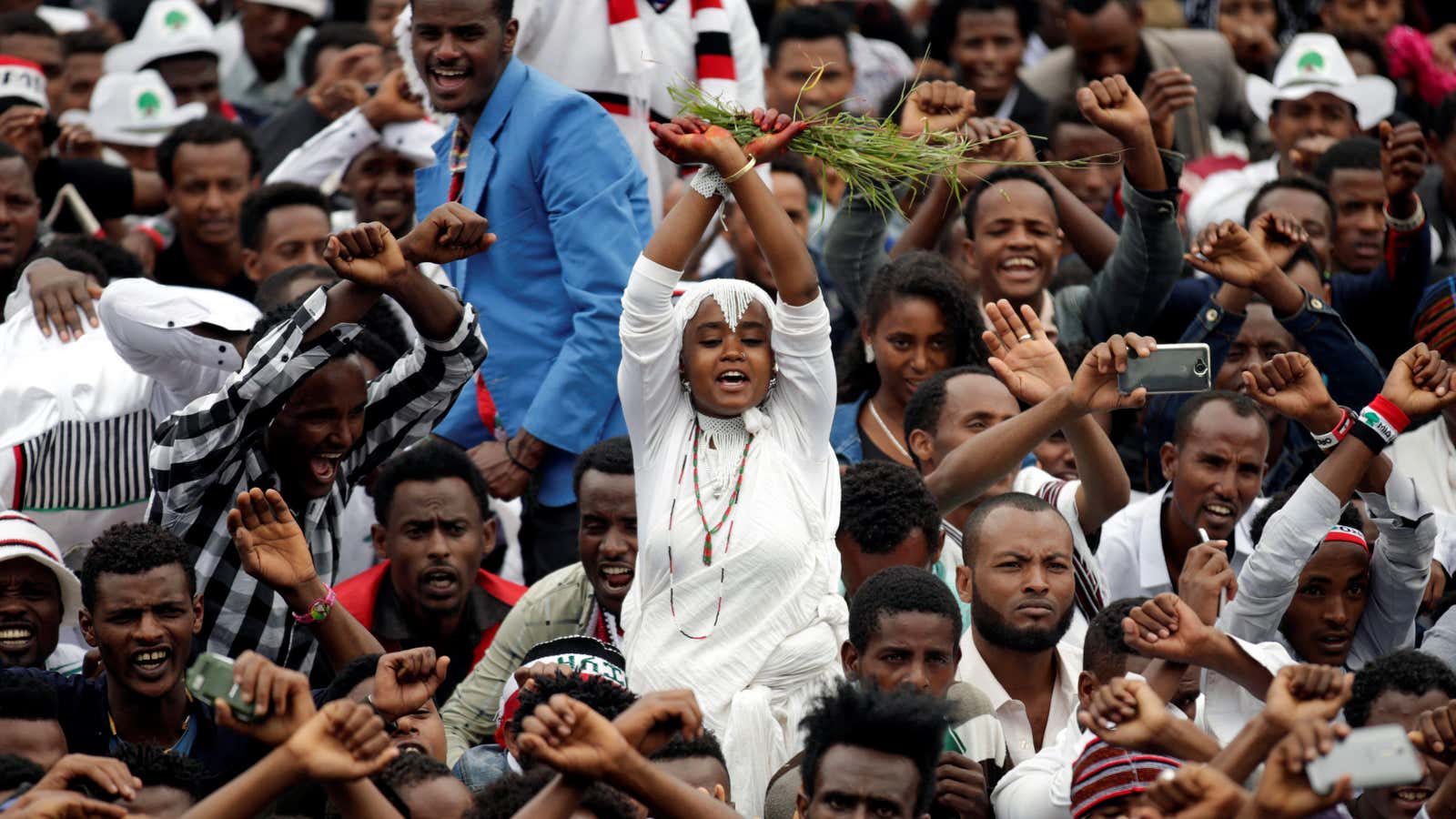Ethiopia has declared a state of emergency, a day after prime minister Hailemariam Desalegn resigned.
On Friday, the ruling coalition’s council announced the move was meant to uphold the rule of law and to stem a wave of anti-government protests. The state-run Ethiopian Broadcasting Corporation said the council “came to the conclusion that imposing emergency rule would be vital to safeguarding the constitutional order of our country.” It was not immediately clear when the measure would be effective or for how long it will last.
The directive comes at a tipping point for the Horn of Africa nation, which has experienced increasing violence and internal political problems for more than two years now. The Oromos and the Amharas, the country’s two largest ethnic groups, have been agitating for more political inclusion, economic equality, and social justice. The minority Tigray community dominates the ruling coalition and opposition complain they enjoy disproportionate influence and representation in government.
The government crackdown had turned fatal, with more than 1,000 people dead and tens of thousands put behind bars, according to advocacy groups. From Oct. 2016 to Aug. 2017, authorities also imposed an emergency rule following deadly protests.
A spate of violence has also ensued between the Oromos and the ethnic Somalis recently, showcasing the governance troubles facing the Tigray-led ruling Ethiopian People’s Revolutionary Democratic Front (EPRDF) party. In early December, when a crackdown on protests in villages in Oromia led to more killings and demonstrations, the government also blocked the internet.
Desalegn resigned amidst all this, but not before he oversaw the release of more than 6,000 political prisoners and journalists since early January. The 52-year-old took these steps, he said, in a bid to foster national consensus, open up political dialogue, and widen the democratic space.
Hours after his resignation, opposition officials and critics abroad started calling for the Ethiopian system of governance to be overhauled. Mulatu Gemechu, deputy secretary of the opposition Oromo Federalist Congress told Reuters that EPRDF had lost its authority, and that “Ethiopians now need a government that respects their rights, not one that keeps beating and killing them.”
And even though the council of ministers has the power to decree an emergency state under the constitution, it still wasn’t known what this meant for the country’s future. Mohammed Ademo, the editor of the OPride, a website that reports on the Oromo diaspora and advocates for social justice in Ethiopia, wrote on Twitter that the command seemed to be “an outcome of a succession struggle gone awry” and “bodes ill for the country’s future. It will hinder the promised reform efforts.”
